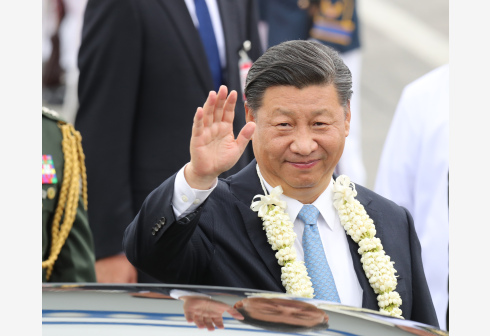English-Français
អន្តរជាតិ

×![]()
ដោយ: Xinhua
DHAKA, Dec. 25 (Xinhua) -- China's reform and opening-up has not only immensely benefited the country and its people, but helped facilitate changes to the landscape of international relations, a Bangladeshi research institute executive said.
"Never before in history has such a large population been lifted out of poverty in such short time as China did during the last four decades," Ali Ahmed, CEO of Bangladesh Foreign Trade Institute (BFTI), told Xinhua as China marks 40th anniversary of the reform and opening-up.
He added. "It is often dubbed as miraculous. But there is no miracle in it."
The historic cause started by the late Chinese leader Deng Xiaoping has been a visionary step, and successive leaders of the country carried the policies forward to transform China into a big global player in an unprecedentedly short period, he said, adding that the people of China also deserve full credit for their hard work.
China, now the second largest economy in the world, has helped power the world economy not only with its Belt and Road Initiative but with foreign aid into countries in need, said Ahmed, adding that many developing countries are benefitting from Chinese loans and grants, both bilateral and multilateral.
"The rise of China has, therefore, been a boon not only to china herself but also to the rest of the world, especially to the relatively poorer countries."
He said the Chinese way of development, with no doubt, deserves admiration.
China's contribution to the development of the world has proven unique, said Ahmed, who served in the Bangladeshi government for decades prior to joining the BFTI in 2015.
Paradoxically, many of the present-day leaders in the Western world, once champions of free trade and globalization, are now working against it, he said.
"They have been advocating free trade and globalisation so long as their goods and services could enter duty-free (zone) without much of competition from poorer economies," the expert said. "But when they started facing competition from their erstwhile importers of finished goods and services... they are raising all kinds of barriers against them."
Amid allegations that China only exports but doesn't import, China International Import Expo held in Shanghai this year is "a fitting reply," Ahmed said. "It ... witnessed a clear Chinese invitation to the others to export to their country. It has been a marvelous economic diplomacy on the part of China."
The benefits China's reform and opening-up has brought to South Asia, especially to Bangladesh, have been and are to be immense, he said, adding that the visit of Chinese President Xi Jinping to Bangladesh in 2016 was a display of Chinese willingness to help with the country much-needed financial and technological development.
A pointer to that is the opening-up of Chinese market for duty-free and quota-free entry of Bangladeshi goods, Ahmed added. Bangladesh, the largest least developed country (LDC) in terms of the size of its population and economy, enjoys such market access under a WTO decision.
China and Bangladesh have already opened discussion to arrive at a Free Trade Agreement, under which Bangladesh would continue to export its duty- and quota-free goods to China, he said.
"They will be on a reciprocal basis," Ahmed said. "At the moment, and for some more years to come, the Chinese policy of opening up her market to the LDCs will continue to be of great help to them. Bangladesh, as a LDC, will reap same benefits."
© រក្សាសិទ្ធិដោយ thmeythmey.com






















